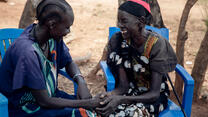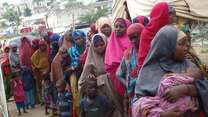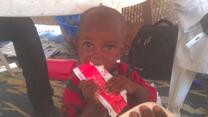Gender-based violence (GBV) often escalates during humanitarian emergencies, especially when crises result in displacement. Increasingly, displaced persons are living in host communities or informal settlements, with more than half of the world's displaced people living in urban areas. Furthermore, conflict and disasters exacerbate many forms of GBV, such as sexual violence, intimate partner violence (IPV), and early marriage. Often those populations at greatest risk of GBV reside in areas that are difficult to access, both in terms of distance and security. To address these challenges, the International Rescue Committee (IRC), with support from the U.S. State Department, Bureau of Population, Refugees and Migration (BPRM), and European Union Civil Protection and Humanitarian Aid (ECHO), has developed guidelines to support the provision of mobile and remote services to survivors of GBV in out-of-camp humanitarian settings. The guidelines recommend approaches and minimum standards for designing and implementing such approaches to service delivery while adhering to best-practice principles.
Resource
Our efficiency
- 87% Programme services
- 7% Management and general
- 6% Fundraising
Join our mailing list
Get the latest news about the IRC's innovative programmes, compelling stories about our clients and how you can make a difference. Subscribe
International Rescue Committee, U.K. is a charitable company limited by guarantee registered in England & Wales | Company number 03458056 | Charity number 1065972 | 100 Wood Street, 6th Floor, London, England, EC2V 7AN
Copyright © International Rescue Committee, 2026.



